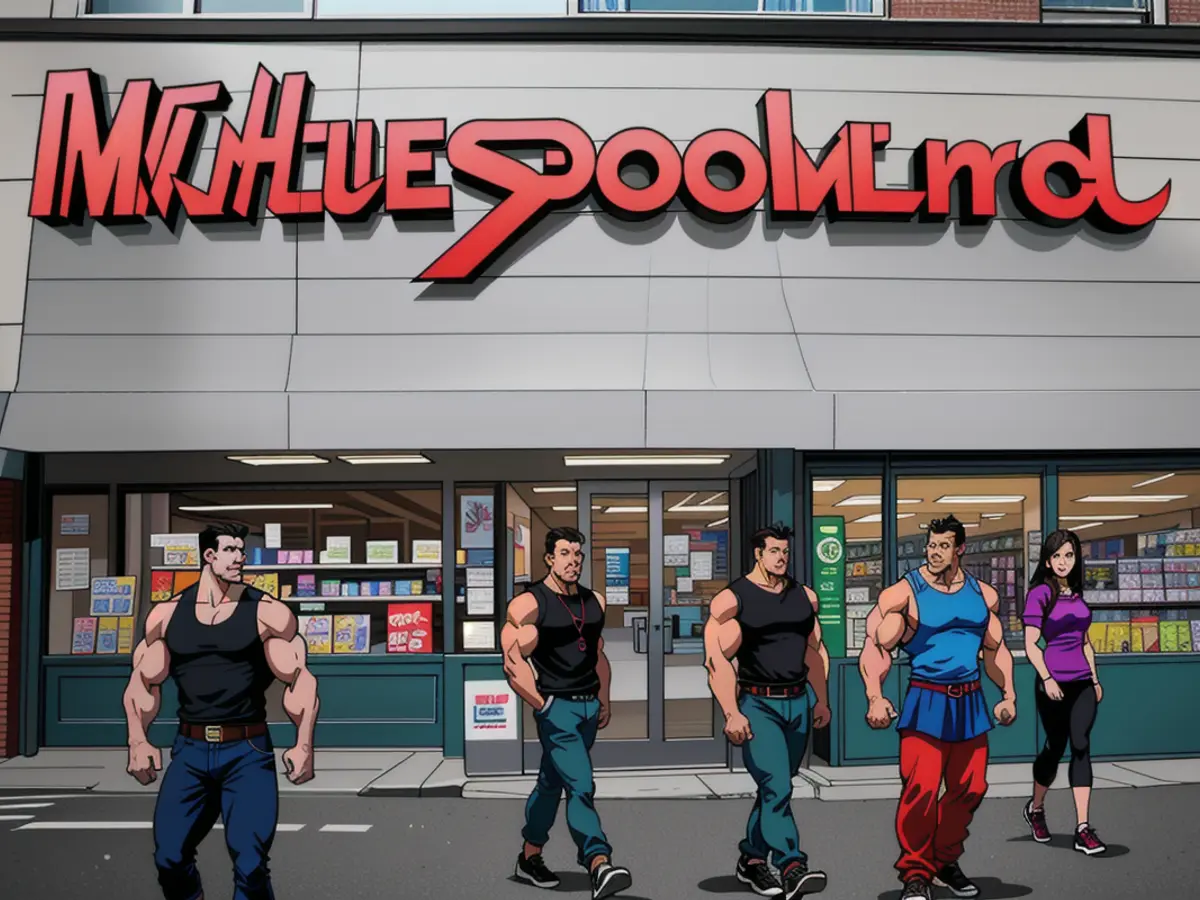Pharmacy chain Walgreens agreements to dispense up to $350 million in opioid lawsuit settlements within US jurisdictions.
New Article:
Let's dive into the latest scoop about Walgreens, the popular pharmacy chain, landed in some hot water with the U.S. Department of Justice. They've been accused of filling millions of prescriptions for opioids and other controlled substances illegally for over a decade.
According to the allegations, Walgreens' pharmacists would fill prescriptions flagged as highly likely to be fraudulent. The government claims the company applied pressure on its pharmacists to churn out these prescriptions at a quick pace, ignoring signs of potential illegality. This sloppy approach allowed a massive amount of controlled substances to flow out of their stores.
It's not just that Walgreens was filling prescriptions it shouldn't have. The company is also accused of seeking reimbursement for many of these invalid prescriptions through Medicare and other federal health programs, in violation of the False Claims Act.
The government has acknowledged the settlement, agreeing to dismiss its complaint. The settlement requires Walgreens to pay at least $300 million, with an additional $50 million owed if the company is sold, merged, or transferred before 2032.
In a statement, Walgreens' spokesperson, Fraser Engerman, maintained that they strongly disagree with the government's allegations and admit no liability. He added that the settlement allows them to close all opioid-related litigation and focus on their turnaround strategy.
It's worth noting that Walgreens isn't the only pharmacy chain grappling with such issues. In December, the U.S. Department of Justice filed a similar lawsuit against CVS. Rite Aid, another pharmacy giant, filed for bankruptcy last December, dealing with losses and opioid lawsuit settlements.
The government's complaint also mentioned that Walgreens' compliance officials disregarded substantial evidence that their stores were filling unlawful prescriptions and withheld important information on opioid prescribers from their pharmacists.
To address these issues, Walgreens has entered into an agreement with the Drug Enforcement Administration to improve its compliance with rules around dispensing controlled substances. They've also promised to maintain policies and procedures that require pharmacists to confirm the legitimacy of controlled substance prescriptions. The company will also set up a system for blocking prescriptions from prescribers producing illegitimate prescriptions.
In partnership with the U.S. Department of Health and Human Services, Walgreens has agreed to establish and maintain a compliance program, which includes training, board oversight, and periodic reporting.
Pamela Bondi, the Attorney General, has stressed the importance of pharmacies in preventing, not facilitating, the unlawful distribution of potentially harmful substances like opioids.
This settlement resolves four cases brought by former Walgreens employee whistleblowers. In 2022, CVS and Walgreens agreed to pay over $10 billion in a multi-state settlement of lawsuits brought against them over the toll of the opioid crisis.
Over the past eight years, drugmakers, wholesalers, and pharmacies have agreed to more than $50 billion worth of settlements with governments, with most of the money required to be used to combat the opioid crisis.
[1] Wall Street Journal[2] Reuters[3] CNN Business
These allegations underscore deep-seated issues within Walgreens' practices that contributed to the opioid crisis by improperly distributing controlled substances. This settlement adds another chapter to the ongoing battle against the opioid epidemic.
- Walgreens, a popular pharmacy chain, has reached a settlement with the U.S. Department of Justice concerning the illegal distribution of opioids and controlled substances.
- The settlement requires Walgreens to pay a minimum of $300 million, and an additional $50 million if the company is sold, merged, or transferred before 2032.
- In its statement, Walgreens asserts that they maintain their innocence and admit no liability, claiming the settlement allows them to close all opioid-related litigation and focus on their turnaround strategy.
- Another whistleblower lawsuit, filed by former employees of Walgreens in 2022, has also been resolved in this settlement.
- The total settlement amount paid by Walgreens and CVS in 2022 exceeded $10 billion in a multi-state settlement linked to the repercussions of the opioid crisis.
- In addressing such issues, Walgreens has entered into an agreement with the Drug Enforcement Administration, pledging to improve its compliance with rules around dispensing controlled substances.
- While resolving the opioid crisis, the company intends to maintain policies and procedures that mandate pharmacists to confirm the authenticity of controlled substance prescriptions.
- As part of its strategy to counter the opioid crisis, Walgreens has formed a partnership with the U.S. Department of Health and Human Services, agreeing to establish and maintain a comprehensive compliance program.








